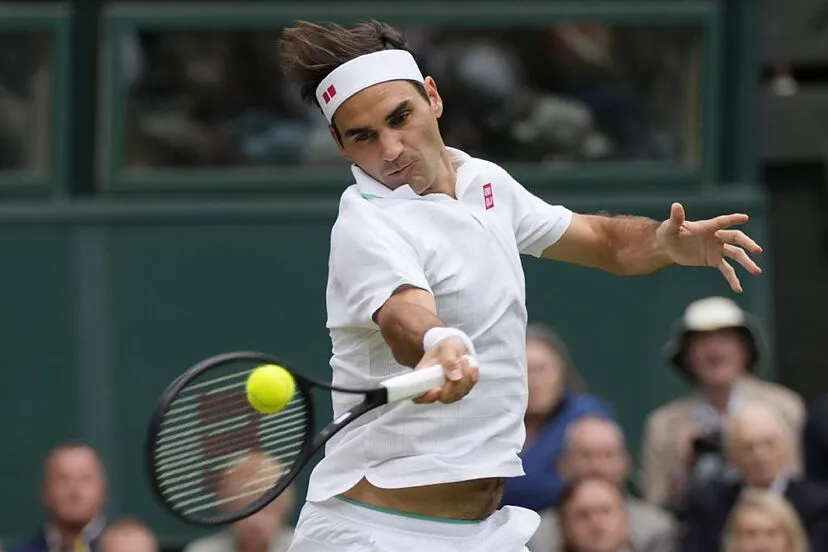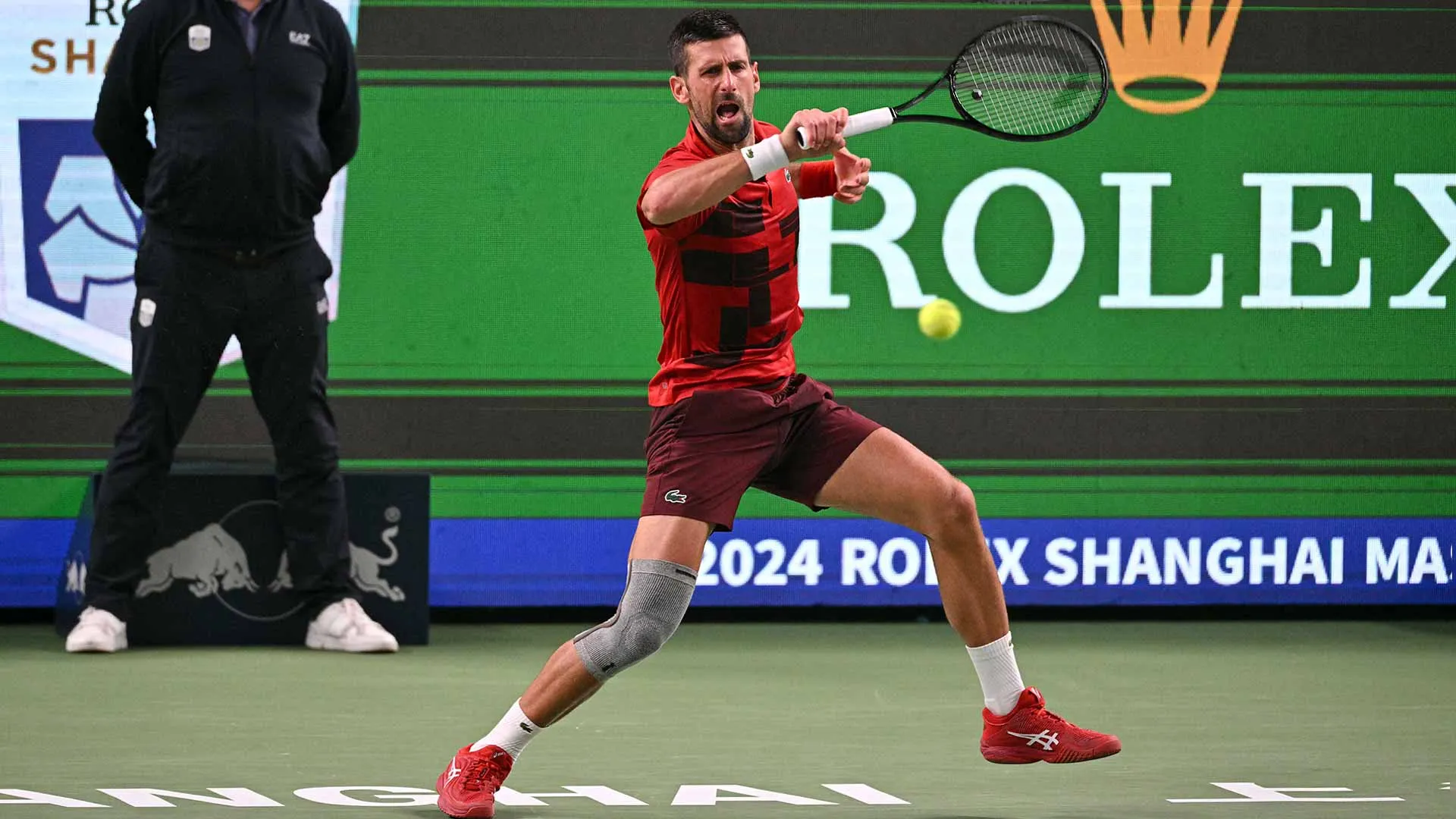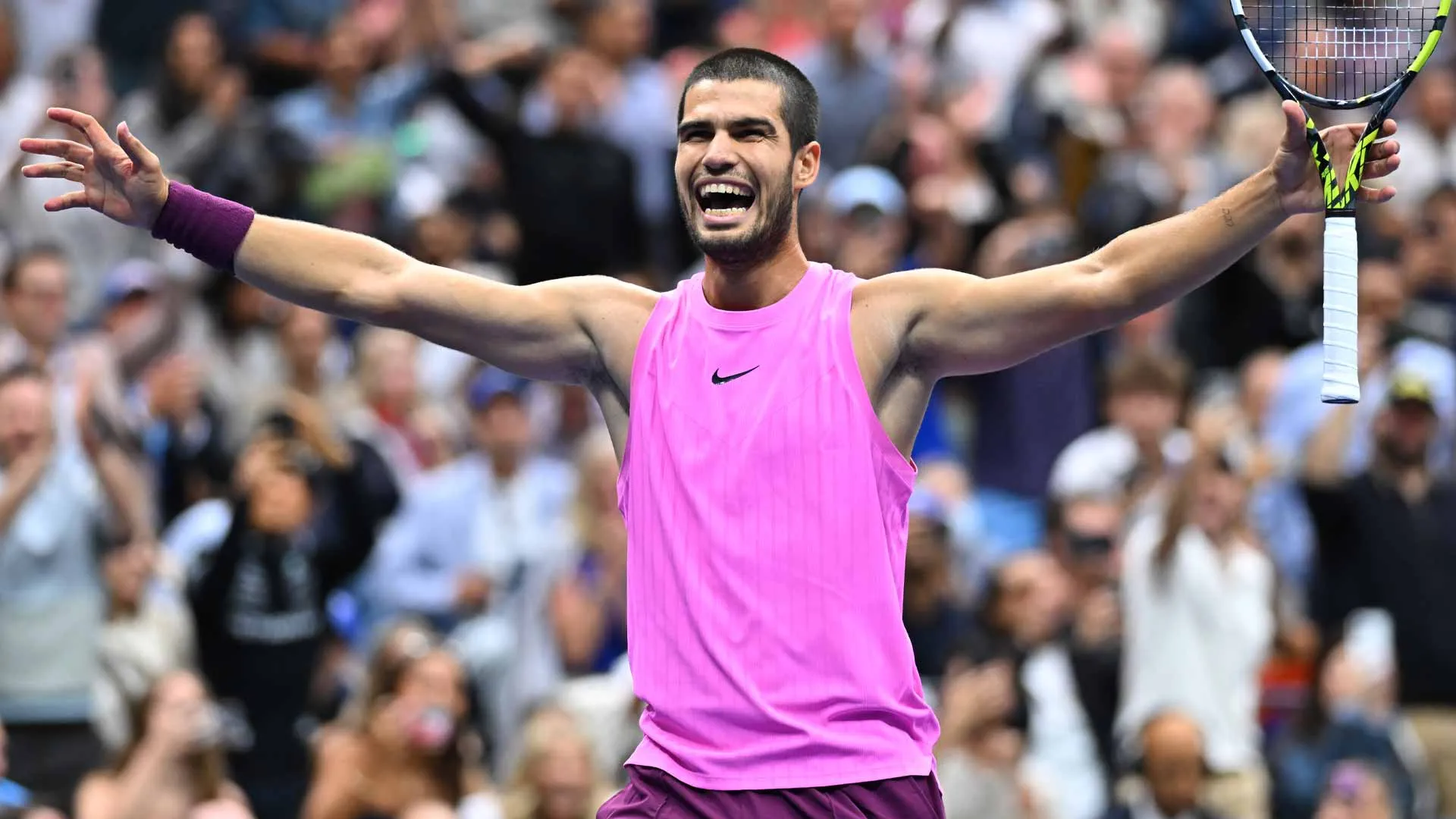
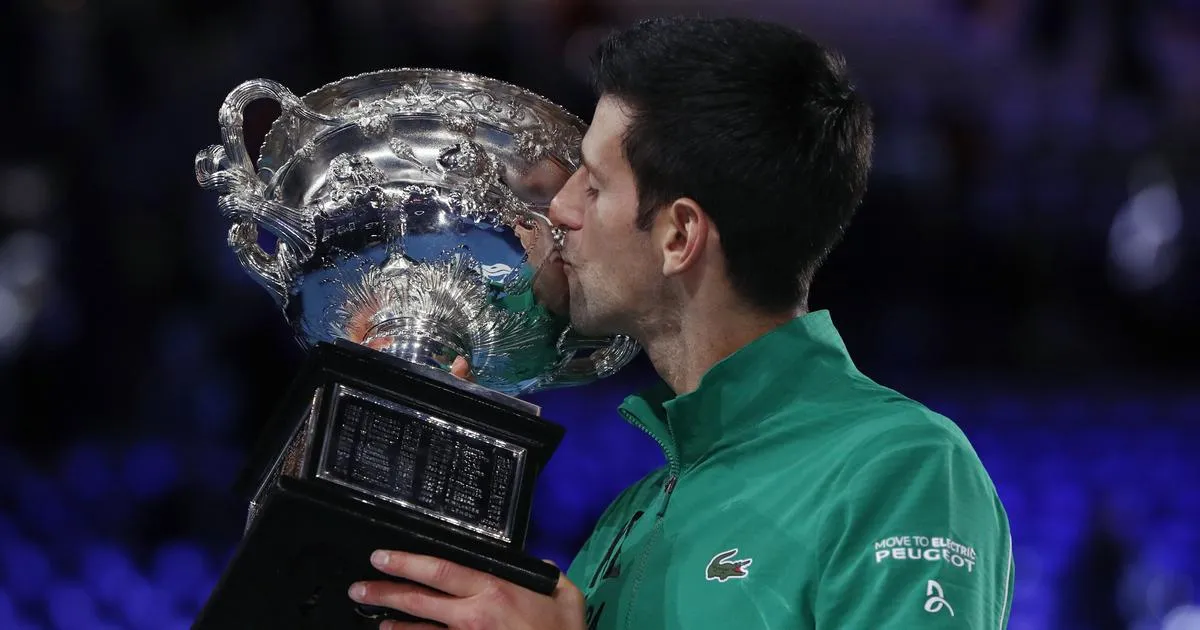
From Tennis Legend To Greek Citizen? Djokovic’s Next Grand Slam May Be Off the Court
In the world of professional tennis, few names carry the weight and dominance of Novak Djokovic. With a staggering collection of Grand Slam titles, weeks ranked as world number one, and a legacy that stretches across decades, Djokovic has already written himself into the annals of sports history. But now, whispers are growing louder, headlines are surfacing, and the world is beginning to ask a new and unexpected question: is Novak Djokovic preparing to make Greece his next home—and possibly even become a Greek citizen?
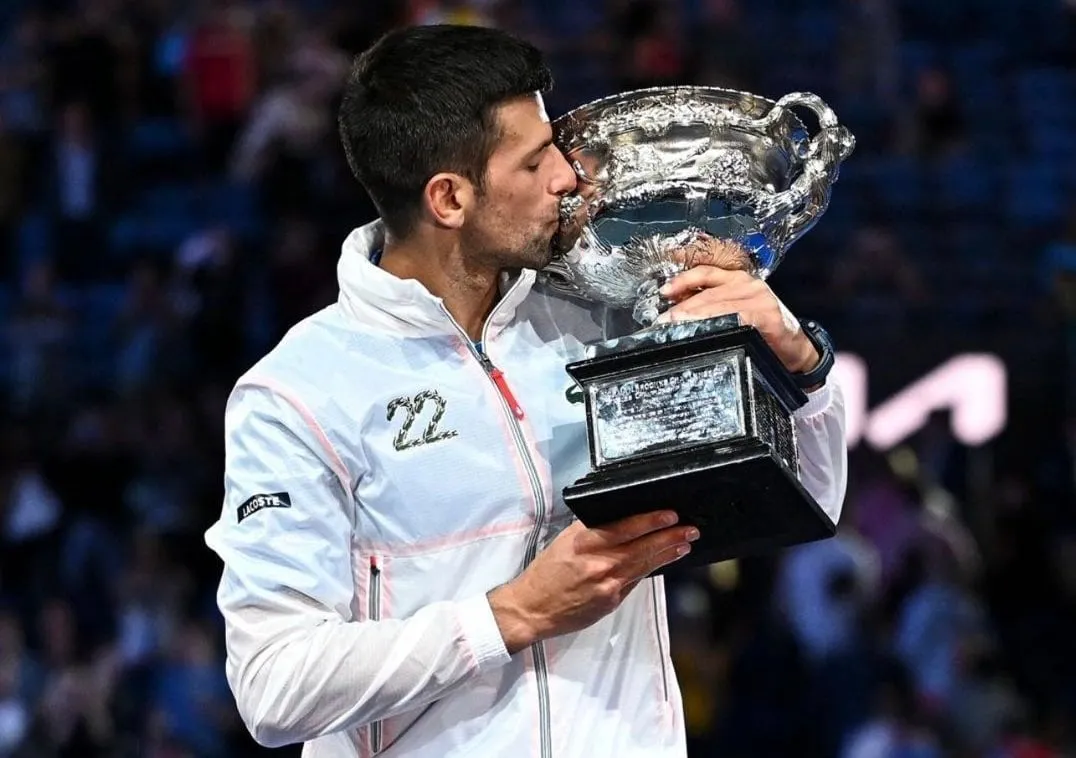
The idea may sound far-fetched on first glance, but recent developments, public sightings, and official murmurs from both Serbia and Greece are painting a picture of a new chapter in Djokovic’s storied life. A chapter that may not take place on a court, but instead, on Mediterranean shores, among white-washed villas and ancient ruins.
A Love Affair with Greece: More Than Just a Vacation Spot
Djokovic’s connection to Greece is not new. Over the past decade, the tennis superstar has been spotted frequently vacationing in locations like Mykonos, Crete, and especially Athos, where he is known to visit the Mount Athos monasteries for spiritual retreats. These visits were not just fleeting escapes from tour life; they seemed to reflect something deeper—a yearning for tranquility, spirituality, and perhaps, belonging.
In interviews over the years, Djokovic has spoken glowingly of the Greek people, their culture, and their philosophy on life. He’s referenced their warmth, their familial values, and most notably, the spiritual significance of Mount Athos in shaping his inner peace during turbulent moments in his career.
But what began as admiration has seemingly evolved. Sources close to Djokovic have confirmed that he has been seriously considering a move to Greece—not just for holidays, but to establish permanent roots.
The Greek Citizenship Rumor: Smoke or Fire?
In early May, Greek media outlets began reporting on a confidential discussion between officials in Athens and representatives of Djokovic’s team. The topic? Honorary citizenship. While unconfirmed by the athlete himself, the reports indicate that high-level government members have been in talks about granting Djokovic the kind of recognition previously offered to major cultural figures and humanitarian icons.
The idea of Djokovic becoming a Greek citizen is not without precedent. In 2020, Hollywood couple Tom Hanks and Rita Wilson were granted honorary citizenship for their contributions to wildfire relief efforts. If Djokovic were to receive similar recognition, it could signify a symbolic “Grand Slam” beyond the sport—a commitment to cultural diplomacy, philanthropy, and identity.
And the move wouldn’t be entirely symbolic. With rumors swirling that Djokovic is eyeing property on the island of Paros, speculation is mounting that the tennis star is transitioning his personal life toward a more Mediterranean rhythm.
A Post-Tennis Life: What’s Next for Novak?
At 38, Novak Djokovic is still defying athletic expectations. His footwork, stamina, and laser-focused mental game remain virtually unmatched. Yet even the greatest champions must one day step away from the arena. While Djokovic has not officially announced any retirement plans, he has increasingly spoken about his desire to focus on family, spirituality, and humanitarian efforts.
In recent press conferences, he’s reflected more and more on legacy—not just in terms of trophies, but in how he impacts the world. “I want to be remembered not just for how I played tennis,” he once said, “but for how I treated people and tried to give something back.”
This newfound emphasis on life beyond tennis is perhaps the clearest indicator that Djokovic’s move toward Greece is more than geographic. It’s existential. It suggests a man who is preparing for Act Two—one where the spotlight dims slightly, and the inner world takes center stage.
And what better place to explore those themes than Greece—the cradle of philosophy, birthplace of democracy, and a nation that embodies the crossroads between body, mind, and spirit?
The Djokovic Brand: Global Icon Meets Hellenic Soul
As a brand, Djokovic has always defied easy categorization. He’s a warrior on court, a thinker off it. A polarizing figure at times, yet undeniably admired. His choice to align himself more publicly with Greece is significant, not just as a lifestyle choice, but as a potential rebranding of identity.
Imagine this: Djokovic retires from tennis, buys a villa overlooking the Aegean, and builds a sports academy for underprivileged youth from across Europe. He hosts spiritual retreats at Mount Athos for elite athletes. He collaborates with Greek philosophers and theologians to create content around mind-body awareness, mental health, and elite performance. He becomes an ambassador not only for Serbia, but for the human potential—and Greece becomes the stage.
This kind of vision is not fantasy. It fits with Djokovic’s increasingly holistic philosophy, his deep interest in Eastern Orthodox Christianity, and his belief in the power of location as transformation.
The Geopolitical Echo: Serbia, Greece, and Identity
Of course, such a move would also have geopolitical reverberations. Djokovic is more than just a tennis star in Serbia—he is a national hero, a symbol of resilience and pride for an entire region that has long fought for recognition on the global stage. Any hint that Djokovic might “switch loyalties” by taking Greek citizenship has already stirred unease among some Serbian commentators.
But perhaps that framing is too narrow. For Djokovic, taking on Greek citizenship may not be about abandoning Serbia, but about embracing something bigger—a pan-Mediterranean identity, a bridge between cultures. He has long spoken of unity over division, and becoming a citizen of Greece may allow him to embody that philosophy in a tangible, geopolitical way.
Moreover, Serbia and Greece share deep historical and religious ties. Both are Eastern Orthodox nations with centuries of interconnected cultural narratives. Djokovic’s move could strengthen—not weaken—those bonds.
Fan Reaction: Divided, But Curious
The fan reaction, as expected, has been mixed. On Serbian sports forums, some fans have expressed confusion and concern. “Why does he need another country?” one commenter asked. “He has everything here.”
Others see it differently. “He’s earned the right to go wherever he wants,” another posted. “If Greece gives him peace, let him have it. He’s given us more than enough.”
In Greece, the response has been largely welcoming. Media outlets have run opinion pieces praising Djokovic’s spirituality and discipline, likening him to a modern-day Stoic philosopher. “He represents everything Greece cherishes—balance, introspection, strength,” wrote one Athens-based columnist. “He would not be an outsider. He would be family.”
A New Kind of Victory
So what would it mean if Novak Djokovic really did become a Greek citizen? If he stepped away from the court not into a corporate suite or a commentary booth, but into the slower, sun-drenched rhythm of Greek life?
It would mean a new kind of victory. Not one measured in sets or trophies, but in personal peace, cultural bridge-building, and a legacy that outlasts any championship.

It would mean Novak Djokovic winning something no opponent could take away—a sense of home. And for fans around the world, it would mark the next compelling chapter in a life already brimming with unexpected turns.
Conclusion: Djokovic’s Greatest Serve Might Be Yet to Come
The idea that Novak Djokovic is eyeing Greek citizenship is still just a possibility. Nothing has been officially confirmed. But like any great champion, Djokovic has a knack for making the improbable feel inevitable.
If his next serve is toward a peaceful life in Greece, then fans might witness not just the evolution of an athlete, but the rebirth of a man. A man who conquered the world’s biggest stadiums and now seeks silence among the olive groves.
In the end, whether or not he becomes Citizen Djokovic of Greece, one thing is certain: his journey is far from over—and his greatest Grand Slam may not involve a racket, but a passport, a purpose, and a new place to call home.








